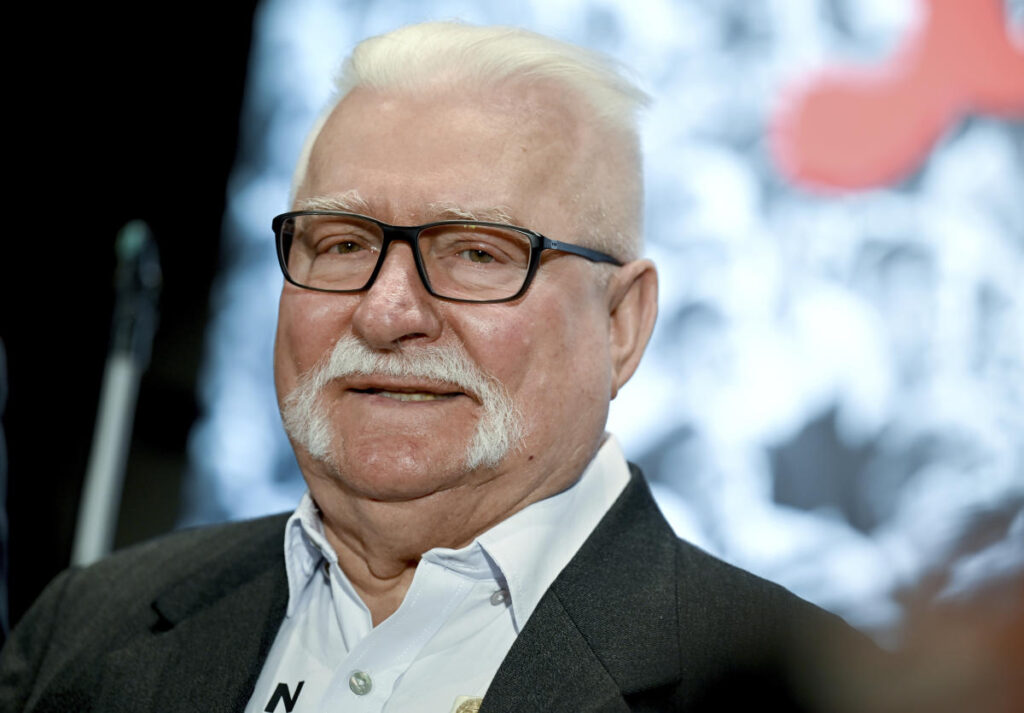Lech Walesa, the distinguished Polish democracy advocate and former president, has expressed his concerns regarding the possible re-election of Donald Trump as president of the United States. Walesa took to Facebook to articulate that such an outcome would lead to “misfortune” both for the U.S. and the wider world, underscoring the weight of the election’s implications on global welfare. Although he emphasized that he typically refrains from intervening in the internal affairs of other nations, he felt compelled to vocalize his views given the significant stakes involved. His remarks highlight an alarming sentiment among some global political figures regarding America’s leadership choices, especially concerning their potential impacts beyond national borders.
At the heart of Walesa’s assertion is a belief in responsible voting by the American electorate. He emphasizes a conviction that voters will make choices that reflect a conscience aligned with broader democratic values and the good of society. His use of capital letters to denote “MISFORTUNE” expresses a fervent urgency in his message. This implies that he perceives a Trump presidency would not merely have policy implications but would resonate with far-reaching ramifications globally. While Walesa did not delve into the specifics of his apprehensions, the overarching implication is a fear of authoritarianism and a retreat from established democratic practices, within both the U.S. and the international community.
Walesa is no stranger to the fight for freedom and democracy; his historical significance as a leader within the Solidarity movement cannot be overstated. During the 1980s, under a communist regime in Poland, Walesa led a movement that advocated for human rights and workers’ rights. This movement became instrumental in the peaceful disintegration of communist rule in Poland, serving as a beacon of hope for many nations suffering under similar regimes. By connecting his past experiences to present-day concerns, Walesa suggests that the values he fought for could be threatened under a leadership reminiscent of that represented by Trump.
His commitment to advocating for human rights and universal freedoms earned him the Nobel Peace Prize in 1983, further solidifying his status as a global symbol of resistance against oppression. Walesa’s trajectory from a labor leader to the presidency of Poland encapsulates a narrative of struggle, perseverance, and advocacy for democratic principles. This background lends considerable weight to his critique of potential future leaders who may not uphold these values. The essence of Walesa’s warnings reflects a wider anxiety among numerous global observers regarding the rise of populism and authoritarian figures.
The implications of Walesa’s statement resonate particularly within the context of contemporary global politics. The election of leaders who prioritize nationalistic or autocratic governance models can create ripple effects that challenge democratic institutions and processes worldwide. By expressing his fears regarding Trump’s potential re-election, Walesa positions himself as part of a collective concern that views the election as a pivotal moment that could either reinforce or undermine democratic ideals globally. His call for responsible voting serves as a reminder of the power wielded by electorates in shaping not only their national landscapes but also international relations.
In summary, Lech Walesa’s comments regarding Donald Trump’s impact on global democracy reflect a deep-seated belief in the importance of governance that champions freedom and rights. His historical legacy as a champion of worker’s rights and democracy places him in a unique position to comment on present political trends. By invoking the past and urging responsible voting, Walesa implicitly calls for a reexamination of the qualities and values that should guide leadership choices in America and how those choices could reverberate around the world. His fervent plea is emblematic of a broader dialogue about the future of democracy at a time when its tenets seem to be experiencing unprecedented challenges.

